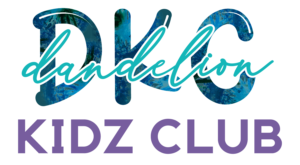Socially your child is behind. They miss social cues and you know they need help.
Our year round social skills groups are specifically designed for ADHD and Autistic children ages 4-13. Although no diagnosis is required, please know that our social skills groups are designed for ADHD and Autistic kids and are not appropriate for children whose only goals focus on reducing anxiety.

~ Club Intro: Play-Based Social Skills for Kids Ages 4-7 ~
Our play-based group offers three programs:
Social Skills Play Group for ages 4-5.5
Social Skills Play Group for ages 5.5-7 with ADHD
Social Skills Play Group for Ages 5.5-7 with Autism
~ Club Beginner: Social Skills Groups for Kids Ages 8-12 ~
Social Skills Groups for Kids Ages 8-12
~ Social Connections: Social Skills for Our Tech & Engineering Guys Ages 8-13 ~
~ Club Creative: Creative Arts Inspired Social Skills for Our Girls Ages 8-12 ~
~ Beyond Social Skills: Gaining Perspective on our Thoughts, Feelings and Worries ~
➤ About Our Social Skills Group Therapy
- Our social skills groups focus on being true to who you are. We teach social and emotional skills through natural learning. For this reason, there is a lot of energy in most of our groups. We work to help our children and pre-teens self-manage and self-regulate in an environment that imitates real life.
- Our social skills focus is not teaching etiquette and manners. We are teaching how to navigate social boundaries and relationships.
- Kids have an opportunity to participate in any of our groups. Many of our kids start in one social skills group and graduate to another. This allows continued learning across multiple environments.
- We teach self-regulation. Each of our social skills groups focuses on self-regulation through learning how to respond to different situations.
- We use both direct teachings, as well as peer support to allow our students increased awareness regarding their impact on others, as well as to learn in a supportive group environment.
- Our kids benefit from consistency. We have groups year-round, and often even offer on minor school holidays. This creates a calming effect for many of our students.
- Our social skills groups create real friendships. Many of our students build lasting friendships with other kids that are just like them.
- We believe that social skills groups should be student-led, not curriculum based. This means that although we have a plan for the group- we respond to the needs of the group. Our flexibility teaches rigid thinkers how to be flexible themselves.
We use the following adapted criteria from Dr. Ross Greene’s Collaborative & Proactive Solutions (CPS) model of care as our social-emotional goals that our social skills groups specifically focus on.
-
Difficulty maintaining focus in social situations
-
Difficulty handling transitions in conversation, and/or shifting from one mindset, activity or conversation to another
-
Difficulty considering the likely outcomes or consequences of actions (low impulse control)
-
Difficulty persisting on challenging or tedious tasks or maintaining conversations that are of low interest to self
-
Difficulty considering a range of solutions to a problem
-
Difficulty expressing concerns, needs or thoughts in words
-
Difficulty managing emotional responses to frustration
-
Chronic irritability and/or anxiety significantly impeding capacity for problem-solving or heighting frustration
-
Difficulty seeing ‘grays’/concrete, literal, black and white thinking
-
Difficulty taking into account situational factors that suggest the need to adjust a plan of action in a social setting, such as the ability to ‘read the room’ and match energy levels to that of others
Inflexible, inaccurate interpretations/cognitive distortions or biases (Ex: everybody is out to get me, nobody likes me)
Difficulty attending to or accurately interpreting social cues/poor perception of social nuances
Difficulty shifting from original ideas, plans or solutions
Difficulty appreciating (understanding) how his/her behavior is affecting others
Difficulty interpreting others’ feelings/emotions
Difficulty starting conversations, entering groups, connecting with people/lacking other basic social skills
Difficulty empathizing with others, appreciating another person’s perspective or point of view
Difficulty handling unpredictability, ambiguity, uncertainty, novelty
The Collaborative and Proactive Solutions (CPS) model is based on the idea that challenging behaviors are the result of children feeling they are unable to meet the expectations or demands of others. The CPS model focuses on creating a collaborative relationship with kids in order to engage them in effective problem-solving strategies. The model aims to decrease conflict by enhancing relationships, improving communication, and helping kids and adults recognize the consequences of behavior and understand others’ perspectives. The CPS model is utilized in our social skills groups as a way to offer clients support during challenging situations. The group leaders first empathize and gather information about situations from the kids, then discuss different perspectives or why the expectations exist, and finally brainstorm with the kids to form realistic plans of action to solve the issues. The challenging behavior or sticky situations are worked through in a way that helps the kids learn problem-solving, perspective-taking, and promotes positive interactions with others!
Interested in learning more? Request a time to learn more about our groups and sign up for the Dandelion Kidz Club program. We have limited availability in all of our social skills groups.
~ Social Skills for Kids – Group Therapy in Charlotte, NC ~
Dandelion Family Counseling provides various groups in the South Park area of Charlotte.
